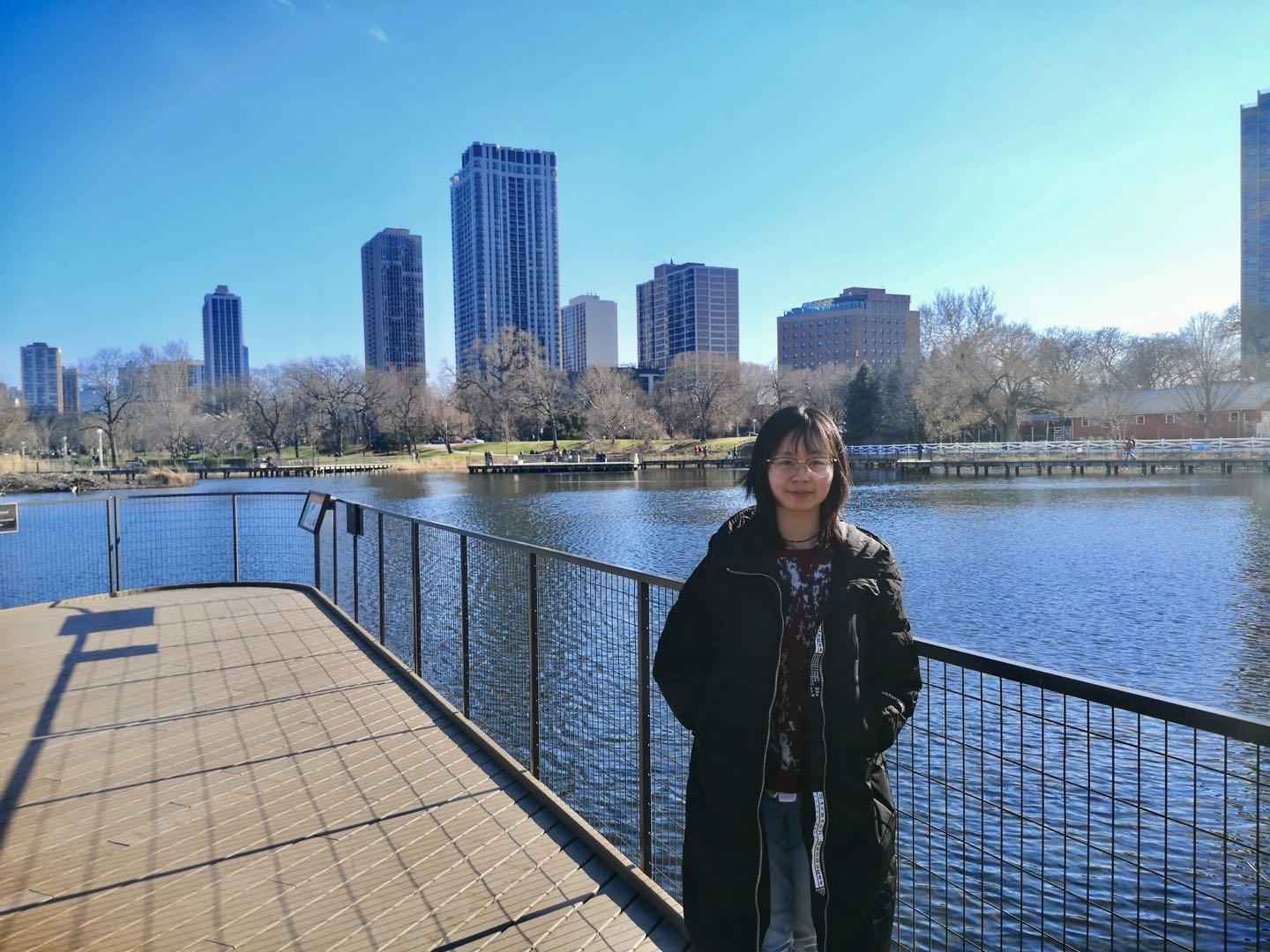Use Zoom? You already know what image matting is. PhD student Yutong Dai wants to make it work better

Story written by Dr Sarah Keenihan, AIML
Have you conducted any work meetings from the beach recently?
Over the past 12 months of video conference calls, some of us have learnt to block the view of our messy home and instead add an ocean or a garden scene in the background.
This works thanks to a technology called image matting, where the software identifies the foreground object (that’s you), and distinguishes it from the background (your chaotic living room).
Through her PhD project in the Australian Institute for Machine Learning (AIML) at The University of Adelaide, Yutong Dai wants to make image matting technology even better.
“This is a graphical problem,” she says. “To make it work better, we have to teach the technology to be able to more accurately identify a person, including all parts of them – their hands, their hair, everything.”
Improving technology
You may have experienced a video call where your hair disappears into greenery in the background, or your hands become invisible when you wave them around to emphasise a point. This is image matting inadequacy.
“If we can improve the technology it could have lots of different applications, not just for programs like Zoom but also photograph editing and shooting movies,” Yutong says.
Image matting is applied when movies are shot using a ‘green screen’ to allow backgrounds and details to be added later in the editing suite.
Yutong says a large part of her PhD is spent testing out new approaches for image matting, with a focus on people as the foreground object.
“We have known baselines or standards of image matting, and we apply different data sets to see if we can make improvements,” she says.
Results that show promise are published in conference proceedings or academic journals.
“That leads to very useful discussions with our colleagues who are working on similar problems, and sometimes new ideas come with those conversations,” says Yutong.
Yutong’s project supervisor is Professor Chunhua Shen, Director of Machine Learning Theory at AIML.
Rising to the challenge
Yutong was quite new to computer science when she started her PhD.
“My undergraduate and master’s degrees were in electrical engineering and automation,” she says. “And actually it wasn’t too difficult to transfer to computer science – although I did have to learn a lot in the first year of my PhD.”
Yutong was excited to take on a PhD, even though she knew it would be challenging.
However she thinks one of the reasons more women don’t end up in computer science careers is because they don’t see themselves as being PhD student material.
“I think we need to open up more, and share what it’s like doing a PhD,” she says. “Yes; doing a PhD is tough, but many different skills are involved and women have those abilities for sure.”
Keep an eye on AIML social media channels LinkedIn and twitter for more postgraduate student and career opportunities in coming weeks and months.
The University of Adelaide is celebrating International Women’s Day 2021 with events at North Terrace and Waite campuses.
